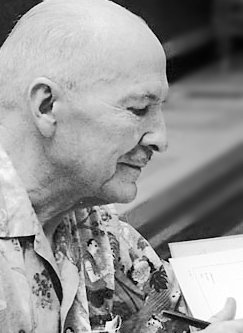
Columbus Was a Dope is a short story by Robert Heinlein about a few guys in a bar talking about exploration. One man, Dr. Appleby, is to go on a spaceship bound for a distant star. Another, Mr. Barnes, argues with him, writing off the adventure as a waste of time. When Barnes asks Dr. Appleby why he is taking the trip, the Appleby responds, "What took Peary to the North Pole? Why did Columbus get the Queen to hock her jewels? Nobody has ever been to Proxima Centauri — so we're going." In other words, he was going for the sake of progress. He was pushing his limits and the limits of human kind for the sake of advancement that he could not yet understand, yet this progress was still inexplicably important. Though he could see no gain from the expedition, he felt that it was so valuable that he was willing to give the rest of his life up to the journey, as it would take over sixty years. He knew that his children would be the ones to see the trip finished, and his grand children would be the ones to finally return, and he was willing to make this decision for all of them because he felt the allure of a new, exciting future so strongly. The kicker to this story is that though Barnes was speaking against exploration for the sake of unknown progress, the very place he was speaking was the result of such actions. Indeed, the bar that they were lightly conversing in was located on the moon, yet Barnes couldn't see the irony in his statements. This further demonstrates humanity's tendency to embrace change. Even though it was in Barnes's character to be satisfied with the old, the old that he accepts is the result of thousands of years of sometimes violent and dangerous progress that he has no trouble justifying. Thus, humanity is in constant, purposeful motion towards a different future, and, upon the arrival of something new, humanity is quick to accept the change and continue moving forward. The growing popularity of science is no coincidence.
Heinlein, Robert. Short Science Fiction Tales. Ed. Isaac Asimov. New York: Collier Books, 1963. Print.
No comments:
Post a Comment